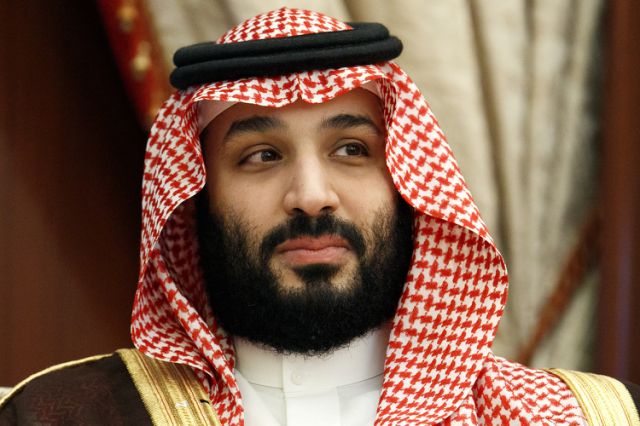Saudi crown prince approved operation that killed journalist Jamal Khashoggi, US intelligence report shows

sbs– Saudi Crown Prince Mohammed bin Salman approved an operation to capture or kill dissident journalist Jamal Khashoggi, who was murdered in 2018, according to a declassified intelligence assessment released on Friday in a manner choreographed to limit damage to US-Saudi ties.
Mr Khashoggi, a US resident who wrote opinion columns for the Washington Post critical of the crown prince’s policies, was killed and dismembered by a team of operatives linked to the crown prince in the kingdom’s consulate in Istanbul.
Riyadh has denied any involvement by the crown prince, Saudi Arabia’s de facto ruler.
“We assess that Saudi Arabia’s Crown Prince Muhammad bin Salman approved an operation in Istanbul, Turkey to capture or kill Saudi journalist Jamal Khashoggi,” the US Office of the Director of National Intelligence said in the report.
The intelligence agency based its assessment on the crown prince’s control of decision-making, the direct involvement of one of his key advisers and his own protective detail, and his “support for using violent measures to silence dissidents abroad, including Khashoggi,” it added.
“Since 2017, the Crown Prince has had absolute control of the Kingdom’s security and intelligence organisations, making it highly unlikely that Saudi officials would have carried out an operation of this nature without the Crown Prince’s authorisation,” the report said.
In declassifying the report, President Joe Biden reversed his predecessor Donald Trump’s refusal to release it in defiance of a 2019 law, reflecting a new US willingness to challenge the kingdom on issues from human rights to the war in Yemen.
Saudi Crown Prince Mohammed bin Salman approved an operation to capture or kill dissident journalist Jamal Khashoggi, who was murdered in 2018, according to a declassified intelligence assessment released on Friday in a manner choreographed to limit damage to US-Saudi ties.
Mr Khashoggi, a US resident who wrote opinion columns for the Washington Post critical of the crown prince’s policies, was killed and dismembered by a team of operatives linked to the crown prince in the kingdom’s consulate in Istanbul.
Riyadh has denied any involvement by the crown prince, Saudi Arabia’s de facto ruler.
“We assess that Saudi Arabia’s Crown Prince Muhammad bin Salman approved an operation in Istanbul, Turkey to capture or kill Saudi journalist Jamal Khashoggi,” the US Office of the Director of National Intelligence said in the report.
The intelligence agency based its assessment on the crown prince’s control of decision-making, the direct involvement of one of his key advisers and his own protective detail, and his “support for using violent measures to silence dissidents abroad, including Khashoggi,” it added.
“Since 2017, the Crown Prince has had absolute control of the Kingdom’s security and intelligence organisations, making it highly unlikely that Saudi officials would have carried out an operation of this nature without the Crown Prince’s authorisation,” the report said.
In declassifying the report, President Joe Biden reversed his predecessor Donald Trump’s refusal to release it in defiance of a 2019 law, reflecting a new US willingness to challenge the kingdom on issues from human rights to the war in Yemen.
As part of Mr Biden’s rebalancing of ties with Saudi Arabia, he will only communicate with King Salman, the White House has said, a move that may allow Washington to put some distance between itself and the crown prince, aged 35.
That will restore protocol broken by Mr Trump and his son-in-law and top aide, Jared Kushner, who maintained a direct channel to the crown prince.
MbS has consolidated power since ousting his uncle as heir to the throne in a 2017 palace coup, seeking to win public support by overseeing popular economic and social reforms.
But he also has had opponents and women’s rights activists detained and pursued risky foreign gambits, some of which backfired, like the intervention in Yemen, where a war between Saudi and Iranian proxies has created a humanitarian crisis.




